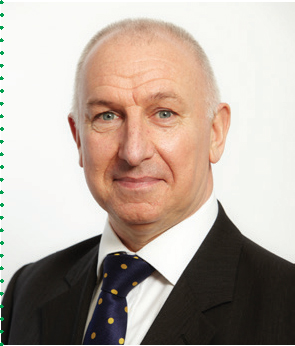
As the new academic year gets under way there will be new paramedic students entering their first year of study, keen and eager to learn the art and knowledge of paramedic science. There will also be those students already in the system going up in their year, so the previous 2nd year student now becomes the finalist, assuming more responsibility for their learning and having to demonstrate through practice and academic assessment that they are able to study at the appropriate level, fit for purpose and good enough to have their name entered onto the professional register.
Paramedic students are required to be assessed in both practice and theory (College of Paramedics, 2015) and assessment is usually carried out on a continuous basis. Health and social care students at most higher education institutions (HEIs) are different from other students who are studying—for example, a degree in engineering or aeronautics—as health and social care students work very closely with the public and their programme of study is located in both the practice setting as well as the university.
The nature of study for paramedic students (and indeed for most health and social care students) means that as part of their programme they are likely to be privy to a range of human emotions, suffering and of course joy. Paramedic students are subjected to the reality of practice very early on after commencing their programme of study when they begin their varied practice experiences. Williams (2013) notes that students are actively involved in emergency assessment, and management and treatment of possibly life threatening and traumatic events that include contact with human suffering, pain, trauma and death.
The overall function of the Health and Care Professions Council (HCPC) is to protect the public and it aims to do this in a number of ways. It maintains a register of health and care professionals who have to demonstrate that they meet their standards regarding their training, professional skills, behaviour and health. The HCPC also sets standards for education and training, professional skills and continuing professional development.
Students are expected to follow to the HCPC Guidance on Conduct and Ethics for Students (HCPC, 2016a) and to aspire to the Standards of Conduct, Performance and Ethics (HCPC, 2016b). The standards (HCPC 2016b) apply also to students who are undertaking an HCPC-approved programme of study. The Guidance on Conduct and Ethics for Students (HCPC 2016a) sets out what the standards mean for students.
The following question has to be asked: why has the HCPC reissued supplementary guidance regarding conduct and ethics for students and education providers when they make it clear that students have to adhere to and follow the HCPC's standards regarding conduct, performance and ethics? It could be suggested that the guidance issued is superfluous to need; while not contradictory to the standards, it could be confusing.
If students must adhere to the standards and education providers already have robust, transparent and fair systems in place for dealing with those students who err on their programme of study, again why the need for the guidance? The education providers must be able to demonstrate that they are competent in the preparation of students who are ready at the point of registration to assume the role of registered practitioners and they have to do this through the HCPC's Standards of Education and Training (HCPC, 2014). These are the standards against which the HCPC assesses education and training programmes, these standards should be robust enough to assure the public that students are able to practise in a professional and ethical manner.
The Nursing and Midwifery Council (NMC), which revised its Code of Conduct in 2015 (NMC, 2015), took the decision not to amend, nor to reissue its previous Guidance on Professional Conduct for Nursing and Midwifery Students (NMC, 2012). They make it clear that students and registrants must adhere to align with the one code.
It is accepted that students on HCPC-approved programmes of study are aspiring to become professionals in a regulated profession and with this privilege comes specific responsibilities, indeed Williams (2013) considered some of these responsibilities. While undertaking their programme of study, students are required to, and will be judged on, their ability to meet high standards of conduct and ethics. The assessment process will to some extent determine this and is absolutely correct, as these students are entrusted with the health and wellbeing of the public. It is also right and correct that they understand how and what HCPC regulated professionals must adhere to and uphold the tenets enshrined within the Standards of Conduct, Performance and Ethics (HCPC, 2016a) and how the standards apply to them as students and as future registered practitioners.
The revision and release of amended guidance for students is a retrospective step. From day one on an approved programme of study students should be working with and towards the one Code: the Standards of Conduct, Performance and Ethics. Stakeholders such as academic staff, practice placement educators and supervisors should have no need for guidance as they should be fully immersed in, aware of, and have full understanding of the Standards. If these stakeholders (essentially the gatekeepers to the profession) require guidance on how to implement the Standards, then there is something seriously amiss and it could be tentatively suggested that they are in contravention of the Standards themselves.

